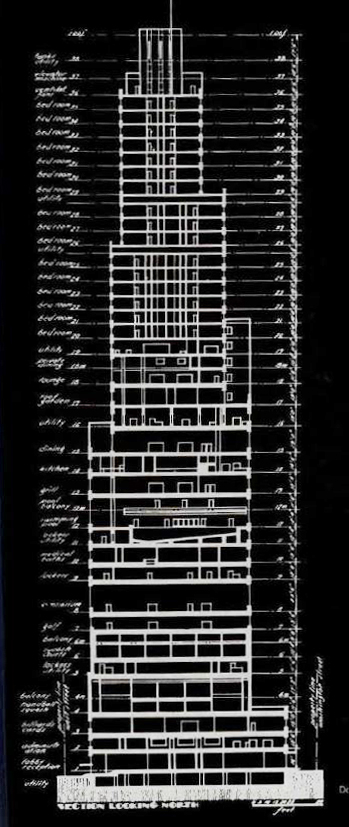Getting On A Level
As I've been composing over the years I've gone through a lot of different genres, with each genre requiring a different approach. When I'm working on pop music it's a different approach than when I'm working on ambient music.
A long time ago I came up with the concept of levels and there are 4 levels: Level 1 is art or music done for the sake of itself, music played as written or played with just 3 chords on a guitar, a painting made for your own amusement, and so on. Mastering technique is a Level 1 activity, even if you're working on something that is ultimately 2, 3, or 4. An example would be doing multiple takes in a studio to get a good performance, but once it's mixed it's at the other levels. Generally, Level 1 will use the left hemisphere of the brain, sometimes in a "rage to master".
[I am of two minds about focusing on rudiments. Sometimes we don’t need them because intuition might be strong enough to allow the music to happen. In jazz, both are happening at once: everyone knows the core theory and so it doesn’t need to be deliberated].
Level 2 utilizes a greater degree of ability, you can play more difficult music, you know music theory and you are more apt to be more "progressive". Prog is a good example of a Level 2 kind of music, as is Jazz. It isn't necessarily conceptual and is typically not based on (experimental) ideas. The avant-garde is not Level 2.
Level 3 has higher levels of musicianship and is based around concepts or ideas which become the focal point of the work. The perfect example of a Level 3 band is Pink Floyd. Any progressive rock band that is conceptual is Level 3. Porcupine Tree and Steven Wilson is the epitome of Level 3. Miles Davis' electric period was Level 3.
At Level 4, music is not necessary and is more sonic and/or conceptual in nature. (John Cage, the Avant-Garde, ambient music). Level 4 in music is more of a visual art, as we "paint with sound". In art, Level 4 is the Readymade. Level 4 is an audio installation at a gallery or museum.
One can use any of these levels for creativity, and is not hierarchical or judgmental in any way. There are natural access points from 1 up to 4, but 1 and 4 don't really have any connection. They don't have an interest in each other.
***
Other "Level" metaphors:
The book A Guide for the Perplexed maps out four essential “Levels of Being” and proposes a model for how they relate to one another and where they belong on the philosophical map.
The book The Four Agreements
The 4 levels of reality in relation to the screen of consciousness: RR (“real” reality), VR, AR, and MR.
Spiritualist Caroline Myss frequently uses the building metaphor with Floors as Levels: Level 1 is the "First Floor", where everyone starts, but can choose to ascend as they would through the Chakra system to reach enlightenment (the "penthouse") where you have a more spiritually panoramic view. In creativity, going up to the penthouse makes you appreciate all levels for their unique characteristics.
Robert Fripp's 4 levels of activity: automatic, sensitive, conscious, and creative--which corresponds in some ways with my level system. See: http://www.moredarkthanshark.org/eno_int_em-jun87.html
[Level 1]: "My playing is habitual. I don't have any time when I'm playing, or very, very little time to concern myself with how I'm playing and concerning myself with what I'm playing. So I've given habit over to playing the guitar. I call it a skill. It's a very, very efficient habit based on twenty-six years of developing a good habit. But if it's only habit well, there's going to be a load of dumb exercises. So I have to have a relationship with my habit so that I can direct it. Well, what part of me directs my hands? My thinking or what I feel?"
[Level 4 creativity]: "Being creative? I can say whenever I've been creative it had nothing to do with me, and yet it must have had something to do with me or I wouldn't have known that the moment was a creative one. So this is when, for example, music turns over and breathes into the notes you play. One cannot fail to recognise it. It's not coming from you-the-player or me-the-player. It's something close but intangible because I can't walk into a room and say "Hey, I'm going to be creative." But what can I do to walk into the room so that I might stand a better chance of being in a creative moment? Well, using those four clever but mysterious words, if I walk into a room with my hands functioning automatically, superbly well, efficiently with no energy wasted, with me in a relaxed and alert condition with my attention engaged, something becomes possible. So. That's what we can do. But until we actually experiment with that and work with it and build up information and experience, they're only bright words."
***
P.S.: Just as I suspected, when I posed the question to ChatGPT, "What are the four levels of creativity?" it answered with the following cliche:
1. Preparation: Gathering information and analyzing the current situation.
2. Incubation: Reframing the problem to create new solutions.
3. Illumination: Aha moments when ideas suddenly come to mind.
4. Verification: Testing and evaluating the new ideas to ensure they are viable.


Comments